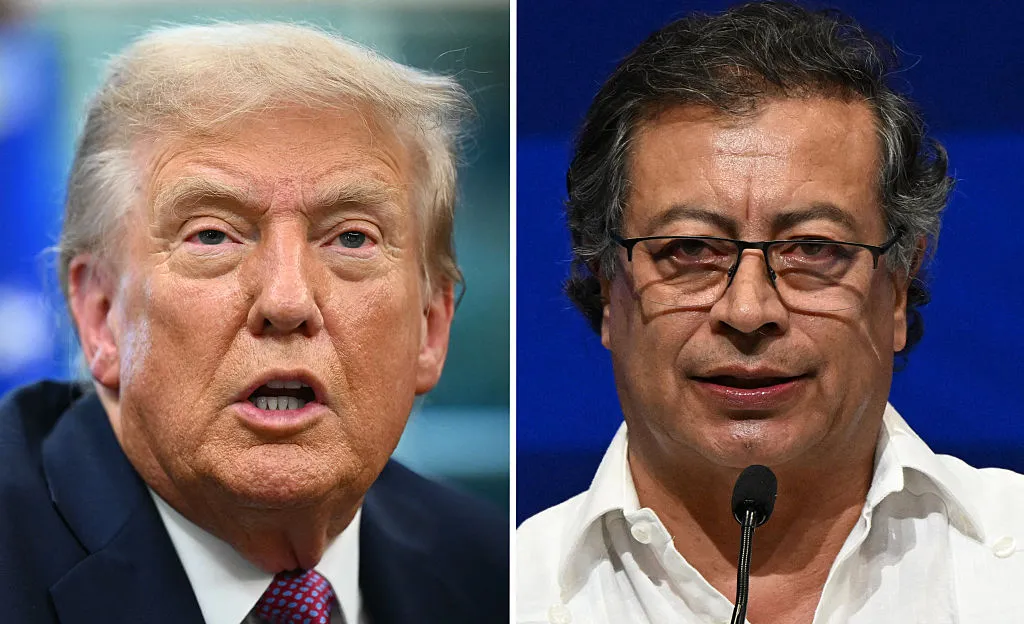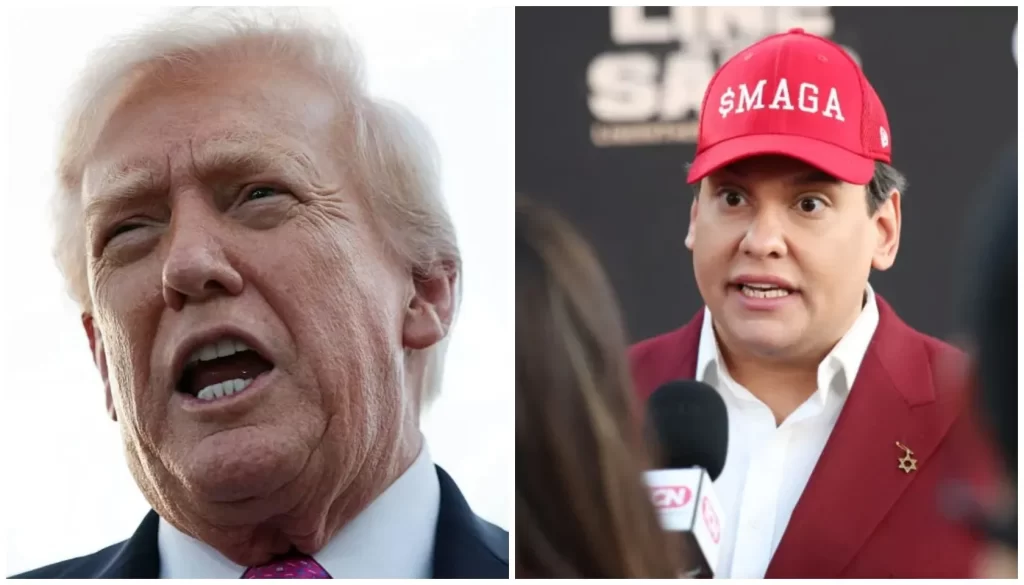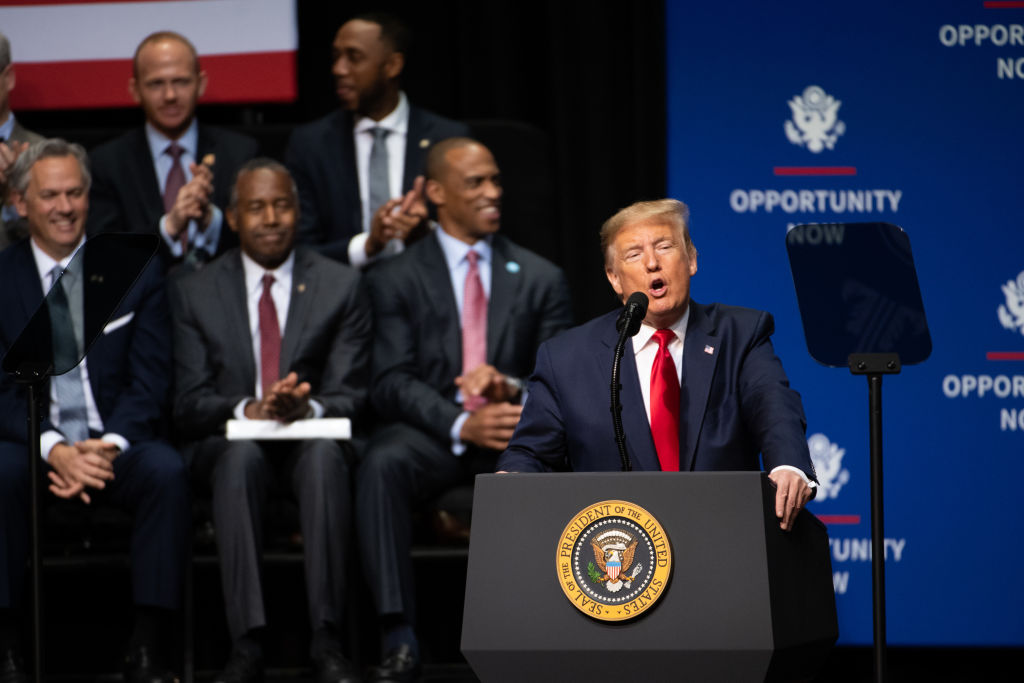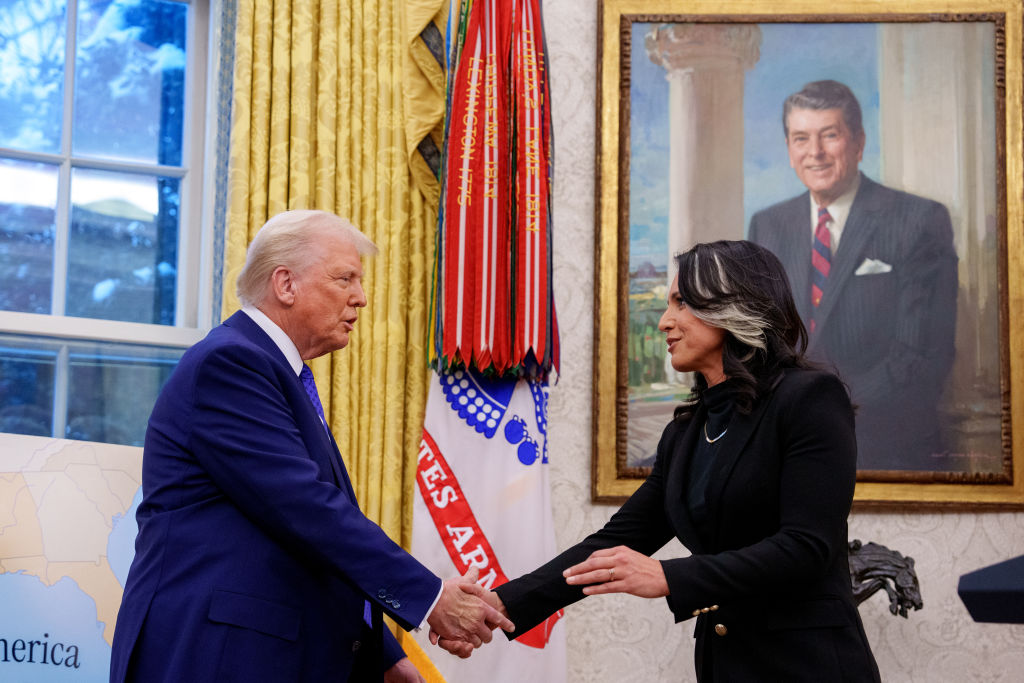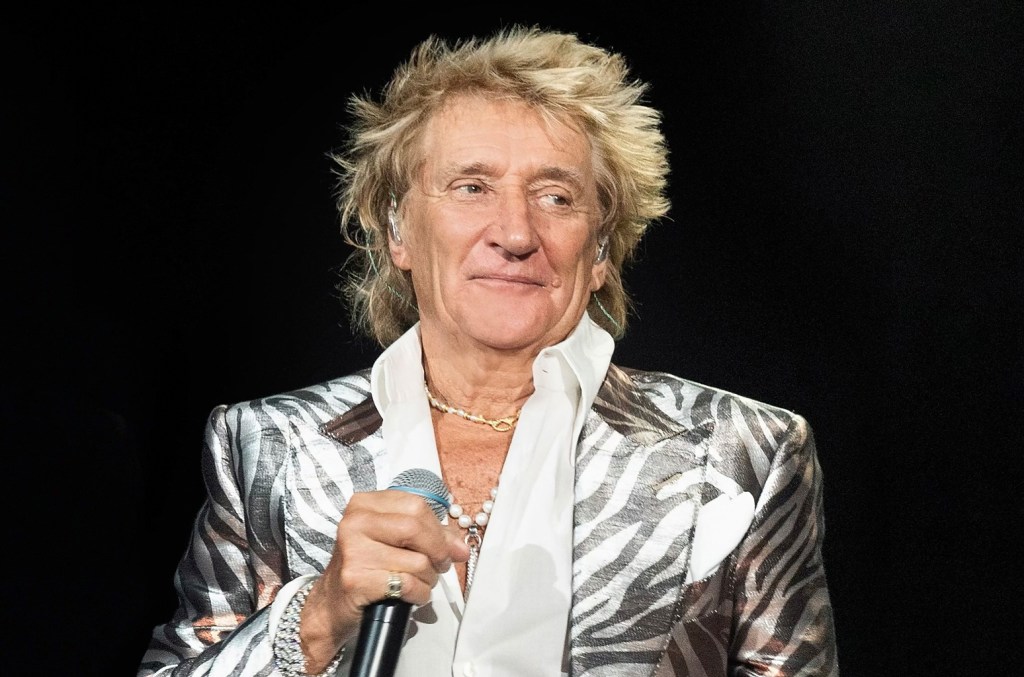politics
Page: 7
Source: JOAQUIN SARMIENTO / Getty
On Sunday (October 19), President Donald Trump ramped up the tensions between himself and Colombian President Gustavo Petro in response to Petro’s accusing the U.S. military of murdering a fisherman during an attack on a boat they claimed was involved in drug trafficking. Trump declared that the U.S. would end all subsidies to Colombia on social media.
In a Truth Social post, Trump claimed that Petro “does nothing to stop” the production of illicit drugs in Colombia, despite large scale payments and subsidies from the USA that are nothing more than a long term rip off of America.” He continued to attack Petro in personal terms, claiming he was an “illegal drug dealer” who had a “fresh mouth towards America.”
Petro fired back later that evening, referring to his country’s Nobel Prize-winning author Gabriel García Márquez.
“You are rude and ignorant toward Colombia. Read, as your chargé d’affaires in Colombia did, ‘One Hundred Years of Solitude,’ and I assure you, you will learn something about solitude,” he wrote in a post on Instagram, adding:” I don’t do business like you do — I am a socialist. I believe in solidarity, the common good, and the shared resources of humanity, the greatest of all: life, now endangered by your oil.”
The threat of suspending financial payments to Colombia is not a light one. According to data from the State Department, the U.S. has allotted $210 million in aid to Colombia, including $31 million going towards its agricultural infrastructure. The Andean nation has been an ally of the United States in the fight against drug trafficking for decades, with billions of U.S. subsidies going towards bolstering Colombia’s military and police security forces as it deals with the ravages of drug cartels in the country.
The exchange comes as U.S. military forces are being steadily deployed throughout the Caribbean, primarily targeting Colombia’s neighbor, Venezuela. According to The New York Times, Secretary of Defense Pete Hegseth announced another strike against an alleged drug boat, which had taken place on the previous Friday (October 19). Currently, there are 10,000 military members deployed along with dozens of ships and aircraft. Critics have noted that the U.S. military attacks (which have killed 32 so far) are extrajudicial and illegal, considering that they’re being carried out without congressional approval.
—
Photo: Getty

Robert Nickelsberg / Donald Trump
The bar continues to nose-dive regarding how low Donald Trump will go. His latest social media stunt is proof he’s full of you know what.
As the entire country came together to protest his blatant power grab, Donald Trump, the so-called President of the United States, was in his office, his bed, or sitting in a golf cart posting another ridiculous AI-generated video of himself, and this time, it was absolutely disgusting.
Trump, who is supposed to be President to all Americans, including the ones who can’t stand him, decided he wanted to clap back at his haters and dropped a very distasteful AI-generated video.
In the bizarre AI-generated slop, Trump is in a “King Trump” fighter jet wearing a crown and an oxygen mask that can barely fit his face, hilariously, and proceeds to dump what looks like human excrement on crowds of “No Kings” protestors.
The “No Kings” Nationwide Protest Definitely Struck A Nerve
It’s clear that the protest Trump and his MAGA cronies tried to minimize as much as possible was on his small mind. Before nearly 7 million Americans took to the streets across the country to denounce the current occupant of the White House and his racist and dangerously corrupt policies.
They tried to claim that the protest would be full of “ANTIFA” members, whom the Trump administration recently designated as terrorists, and painting it as “un-American” with Republicans in unison labeling it the “Hate America rally.
Some Governors even mobilized the National Guard in hopes of spooking protestors.
But that clearly didn’t work, and all of the protests were peaceful, unlike the saltine-fueled insurrection on January 6, 2021.
Trump is such a man-child.
You can see more reactions to Trump’s post and the No Kings protest below.
Getty Images / Donald Trump / George Santos
Donald Trump is releasing something, unfortunately, it’s not the Epstein files as promised; instead, it’s fellow fraudster George Santos.
Friday evening, Donald Trump announced he was commuting the sentence of disgraced former Republican congressman George Santos, releasing him from prison immediately.
In a post on Truth Social announcing his ridiculous decision, Trump wrote that Santos “was somewhat of a ‘rogue,’ but there are many rogues throughout our Country that aren’t forced to serve seven years in prison.”
Santos’ commutation sees him serve nowhere close to the 87 months (about 7 years) he was sentenced to in federal prison after pleading guilty to committing wire fraud and aggravated identity theft.
Like Trump, Santos was a legendary liar, and before he was sworn into office, he admitted to lying about details about his life that he shared while on the campaign trail.
As a sitting member of Congress, Santos was charged by the Department of Justice with a litany of federal crimes, including fraud, theft, money laundering, and making false statements.
George Santos Did A Masterful Job In Kissing Trump’s Butt In Hopes of Getting out of Prison Early
Trump made his decision to commute Santos’ prison sentence after allies and multiple friends of the fraudster begged Orange Mussolini for his clemency, according to a senior White House official.
The official also claims that Trump “read” Santos’ letters he wrote from prison complaining about the conditions, while also kissing Trump’s a** and showering him with compliments.
Santos’ letter was published on Monday in a local Long Island newspaper, The South Shore Press, and he didn’t waste time pleading with Trump to get him out of the clink.
“You have always been a man of second chances, a leader who believes in redemption and renewal,” Santos wrote. “I am asking you now, from the depths of my heart, to extend that same belief to me.”
Donald Trump’s Justification For Commuting George Santos’ Sentence Is Absurd
To justify springing Santos from prison, Trump claimed on Truth Social that he was thinking about Santos after he was reminded about Sen. Richard Blumenthal, who was able to overcome waves of criticism after saying he “served in Vietnam” even though he admitted that wasn’t the case.
Trump also said that Blumenthal “should be investigated, and Justice should be sought,” after his Attorney General brought up the senator lying about his military record during a tense exchange during a recent Senate hearing.
Blumenthal said he mispoke regarding his military service in 2010 and has called Trump’s latest attacks on him “completely deceptive and distorted.”
Also, keep in mind that President Bone Spurs never served in the military, so all of this coming from him is pure projection.
Trump claimed in his post that Blumenthal lying about his combat service “is far worse than what George Santos did, and at least Santos had the Courage, Conviction, and Intelligence to ALWAYS VOTE REPUBLICAN!”
“George has been in solitary confinement for long stretches of time and, by all accounts, has been horribly mistreated,” Trump wrote.
“Therefore, I just signed a Commutation, releasing George Santos from prison, IMMEDIATELY. Good luck George, have a great life!”
Bruh.
You can see more reactions below.
Source: Sean Rayford / Getty
I don’t know who needs to hear this but the President of the United States is not the president of Israel and yet here we are issuing an ultimatum to two warring nations that have no vested interest in America.
For some ungodly reason, and mostly because President Trump doesn’t know how to mind his damn business, Elon Musk’s frenemy has ordered Iran and Israel to figure out their issues in a two-week period or America will start bombing Iran.
The craziest part of all of this is that Israel just started bombing Iran last week and now Trump and Israel want Iran to relent or face more bombing.
Here’s how CNN put it:
The hope among Trump and his advisers is that Iran — under constant Israeli attack and having suffered losses to its missile arsenal — will relent on its hardline position and agree to terms it had previously rejected, including abandoning its enrichment of uranium, according to US officials.
The deferred decision, which came after days of increasingly martial messages from the president suggesting he was preparing to order a strike, also gives Trump more time to weigh the potential consequences — including the chance it could drag the United States into the type of foreign conflict he promised to avoid.
But negotiating a diplomatic solution in Trump’s condensed timeline appeared to face significant early hurdles.
First, Trump put together some kind of peace team that included Assistant Senior Advisor Steve Witkoff and Vice President JD Vance to talk with Iran but that fell apart before it got started.
According to CNN, “Foreign ministers from Britain, Germany and France are traveling to Geneva on Friday to hold talks with Iranian representatives, and have been briefed on the details of the last deal Witkoff offered to Iran, which Tehran ultimately rejected before the Israeli strikes began. Among US officials, there were not high expectations of success for Friday’s meeting in Geneva, one US official said. But a White House official kept the door open to progress.”
“This is a meeting between European leaders and Iran. The President supports diplomatic efforts from our allies that could bring Iran closer to taking his deal,” a White House official said.
Iran has been consistent in their messaging which is this: “I’m not talking about a ceasefire while Israel is still bombing us.” I’m paraphrasing but you get the point. And here is the funniest part of it all: America hasn’t told Israel to stop bombing Iran! Don’t believe me? Trump literally told Israeli Prime Minister Benjamin Netanyahu, just last week, to “keep going.”
Iran is like,”Why do you keep talking to us when we are just trying to defend ourselves. Talk to your folks.”
I don’t know why the president keeps pump-faking and yet, here we are.
“I think the president has made it clear he always wants to pursue diplomacy. But believe me, the president is unafraid to use strength if necessary,” press secretary Karoline Leavitt said Thursday. “And Iran and the entire world should know that the United States military is the strongest and most lethal fighting force in the world, and we have capabilities that no other country on this planet possesses.”
This is clearly not our fight and for some reason Trump is allegedly willing to back Israel and their bullying ways with all of the force of the American military.
I would like to defer to senior Black official of all Black military affairs who left this message for Iran:
HipHopWired Featured Video
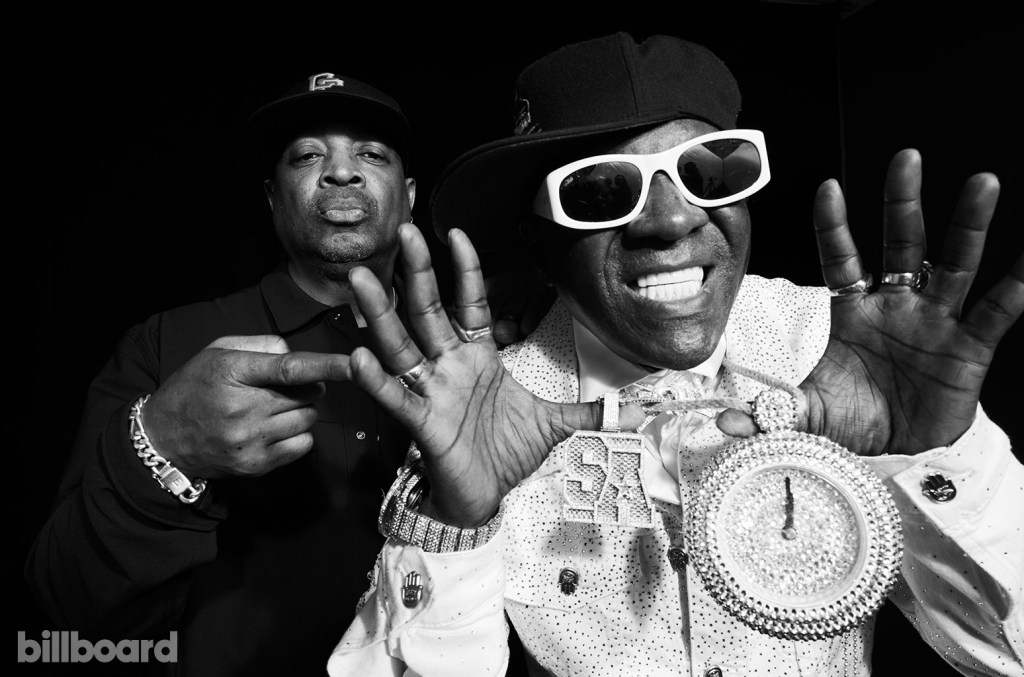
Public Enemy has new rhymes designed to fill your mind. The iconic hip-hop group dropped new protest song “March Madness” in honor of Juneteenth on Thursday (June 19).
“PUBLIC ENEMY IS STILL FIGHTING THE POWER,” Flavor Flav wrote in a statement posted to X that day before noting how President Joe Biden signed the national holiday into law on June 19, 2021, and that 160 years have passed since the Confederates surrendered in the Civil War in 1865. “But it feels like we are on the brink of something similar with ongoing efforts to dismantle diversity equity and inclusion. We don’t want what’s going on in Israel vs Palestine and now Iran. We don’t want what’s going on Ukraine vs Russia,” he continued. “I hate war. I hate what’s going on around the world and in US. We are supposed to be THE UNITED STATES and war ain’t about Unity. We have our rights and can use them while we still have them. I have this platform and will use it will I still have it.”
Flav then went on to share that the song was a collaboration with students from three universities. “It was an honor to work with the students from Harvard, Berklee, and Howard Universities to create a protest anthem about important issues we are facing as human beings right now,” he wrote before ending with, “MARCH ON,!!”
Trending on Billboard
The ominous “March Madness” kicks off with audio from a 911 call, with the operator asking if the caller is still hearing shots, with a newscaster then reporting, “You hear the teacher asking for helpAs she also tries to keep her students calm.”
“Now I’m America’s nightmare/ A debonaire black millionaire/ Checking these crooked politicians who ain’t playing fair/ Shut up! Too much talk/ We know you don’t care,” Flav begins in verse one before throwing in one of his famous “Yeaaaah boys.” He goes on to rhyme: “911 is still a jokе/ So no, motherf–ka, you ain’t getting my vote.”
Chuck D comes in on the second verse with a scathing commentary on the numerous school shootings that have taken place in the United States in recent years. “Trigger happy, hi, I wanna ask a question/ Does a gun need to be in a school to teach or nones?/ Kids supposed to have fun, none of this ‘Run for cover for your life, son,’” he raps before blasting lawmakers for “acting scared off the NRA.”
He also addressed the issue in a separate statement. “Gun violence is not normal behavior, but it’s been going on for so long that it’s normalized,” Chuck D said. “We need to treat it like the sickness and the epidemic that it is.”
The Grammy-nominated group is currently on a world tour, which kicked off earlier in June in Florence, Italy. Public Enemy will also be the support act for Guns n’ Roses on several of the rock band’s European tour dates this summer.
Listen to “March Madness” and see Flav’s full statement below:
PUBLIC ENEMY IS STILL FIGHTING THE POWER ✊🏾Today is Juneteenth.It became a federally recognized holiday on June 19, 2021 signed into law by The President. This was only 4 years ago and 160 years since the confederation surrendered during the civil war. But it feels like we… pic.twitter.com/N9AysjcI2S— FLAVOR FLAV (@FlavorFlav) June 19, 2025
Senators Marsha Blackburn (R-Tenn.) and Ben Ray Luján (D-N.M.) asked the Federal Trade Commission to investigate Spotify on Friday (June 20). In a letter to FTC Chairman Andrew Ferguson obtained by Billboard, the senators accused the streamer of converting “all of its premium music subscribers into different — and ultimately higher-priced — bundled subscriptions without […]
Source: Taylor Hill / Getty
For the past few weeks, the American people have been speaking up against Donald Trump’s fascist regime amid his hardcore immigration crackdown, which has led to quite a few Americans and neutralized citizens getting caught up in his dragnet of apparent ethnic cleansing. But while we see his own personal Gestapo terrorize Black and Brown communities in LA, New York and other cities, many aren’t aware that ICE is also invading the often-overlooked island of Puerto Rico.
Yes, Puerto Rico too has been dealing with ICE raids as masked white men rummage through the Borinquen streets and search for illegal immigrants on the island. Many of its residents aren’t pleased with what they’re seeing including its most famous superstar today, Bad Bunny. Taking to social media to show ICE “agents” harassing everyday people while they work, Bad Bunny cursed out ICE (in Spanish of course), called them “sons of b*tches” and slammed them for terrorizing everyday working people in the streets of Puerto Rico.
While it may be a bit confusing as to why ICE is on a Latino island looking for Latinos to deport, the U.S. commonwealth does house quite a few people from places like the Dominican Republic, Haiti, and other countries that aren’t part of the U.S.
Still, Puerto Ricans are known to have welcomed people from all places to their island, but this current American regime is having none of that. With numbers suggesting that up to 20,000 illegal immigrants live in Puerto Rico and ICE having a quota to meet of 3,000 deportations per day, it doesn’t seem like ICE will be leaving the good people of Puerto Rico (or America for that matter) alone anytime soon.
On the bright side, there is word that ICE is already a billion dollars over budget and may soon run out of money to keep operations going. Still, it feels like in Trump’s America, hate will always find a way to flourish even at the expense of decent people.
What do y’all think about ICE carrying out deportation operations in Puerto Rico? Let us know in the comments section below.
HipHopWired Featured Video
President Donald Trump and the Director of National Intelligence, Tulsi Gabbard, once appeared to be in lockstep when it came to foreign policy. However, there are rumblings in Washington that Tulsi Gabbard’s recent actions on social media have angered President Trump, showing a potential fracture within the administration.
Politico published a report highlighting the tensions between Gabbard and Trump that came in the wake of the rising conflict between Iran and Israel. On June 10, Gabbard took to X and shared an ominous video that displayed to viewers that the “political elite” and “warmongers” were recklessly at odds and suggested that Earth is “on the brink of nuclear annihilation.”
The outlet added in its report that Trump saw the video, which was not approved by the administration, and told others at the White House that she went outside the lines regarding messaging around the Iran and Israel conflict. Trump met last week with Israeli officials who sought the United States’ support in its assault on Iran. It was also stated that Trump reportedly thought Gabbard was trying to steer him away from working with Israel on their recent offensive maneuvers.
“I don’t think he dislikes Tulsi as a person. But certainly the video made him not super hot on her, and he doesn’t like it when people are off message,” a source close to Trump told Politico.
The rumors of disdain appeared somewhat true after Trump spoke to a throng of reporters aboard Air Force One. When asked about Gabbard’s comments made in March that Iran was not developing a nuclear weapon, Trump made a stern statement.
“I don’t care what she said,” Trump said on Tuesday (June 17). “I think they were very close to having one.”
Tulsi Gabbard spoke to reporters as well yesterday, claiming that she and President Trump were in agreement about the situation unfolding in Iran. That said, outside observers are seeing this potential split as a troublesome thing for the Trump administration.
We’ve got reactions from X regarding the situation below.
—
Photo: Andrew Harnik / Getty
HipHopWired Featured Video
CLOSE

Bruce Springsteen isn’t backing down when it comes to his thoughts on President Donald Trump.
In a wide-reaching interview with The New York Times published Wednesday (June 18), the rock star criticized everything from the politician’s leadership to his effect on the social fabric of the United States. Springsteen is currently on his Land of Hope & Dreams Tour, on which he performs a setlist every night that he says “addresses our current situation” under Trump’s administration.
And how would Springsteen describe the current situation? “It’s an American tragedy,” he told the publication. “I think that it was the combination of the deindustrialization of the country and then the incredible increase in wealth disparity that left so many people behind. It was ripe for a demagogue. And while I can’t believe it was this moron that came along, he fit the bill for some people.”
Reflecting on Trump’s first few months in office since winning a second term, Springsteen added that “what we’ve been living through in the last 70 days is things that we all said, ‘This can’t happen here. This will never happen in America.’ And here we are.”
The Boss has long been vocal in his opposition to Trump, endorsing Kamala Harris in the 2024 election and telling The Atlantic four years prior that the twice-impeached POTUS was a “threat to our democracy.” Trump, however, hit back at Springsteen a few weeks ago after the rocker slammed his administration as “corrupt, incompetent and treasonous” during a May concert in Manchester, England.
“I see that Highly Overrated Bruce Springsteen goes to a Foreign Country to speak badly about the President of the United States,” Trump wrote on Truth Social shortly after the show. “Never liked him, never liked his music, or his Radical Left Politics and, importantly, he’s not a talented guy — Just a pushy, obnoxious JERK … This dried out ‘prune’ of a rocker (his skin is all atrophied!) ought to KEEP HIS MOUTH SHUT.”
The insults didn’t phase Springsteen, who has since continued to voice his dismay with the current state of affairs in his home country on stage. In late May, he released an EP featuring a recording of the speech that ticked Trump off.
And in his NYT interview, the Rock & Roll Hall of Famer didn’t shy away from criticizing Trump’s immigration policies, which in recent weeks have manifested in widely criticized ICE raids in places like Los Angeles. “There’s a large migrant population that lives and has altered Freehold in a very vibrant way,” Springsteen said of his hometown in New Jersey.
“There are communities all across America now that have taken in immigrants and migrant workers,” Springsteen continued. “So what’s going on at the moment to me is disgusting, and a terrible tragedy.”
Despite everything, though, the musician says he still has a lot of hope for the future of the country he’s spent his career writing about in his songs. Why? “Because we have a long democratic history,” Springsteen said. “We don’t have an autocratic history as a nation. It’s fundamentally democratic, and I believe that at some point that’s going to rear its head and things will swing back.”
He added, “Let’s knock on wood.”
Rod Stewart and Donald Trump may live close to one another, but that doesn’t mean the rock star feels any sort of neighborly way about the President of the United States.
In an interview with Radio Times published Tuesday (June 17) ahead of his upcoming Glastonbury performance, Stewart didn’t hold back when asked about the mogule-turned-politician, with whom he used to be friends. “I’m not a great fan of Trump,” he told the publication. “I knew him very, very well. I used to go to his house.”
“I live literally half a mile away,” continued Stewart, who has a residence in Palm Beach, Fla. “We’re both on the beach. I used to go to his Christmas parties. He’s always been a bit of a man’s man. I liked him for that. But he didn’t, as far as I’m concerned, treat women very well.”
Stewart added that he thinks becoming the leader of the country changed his former pal for the worse. “Since he became president, he became another guy,” the musician said. “Somebody I didn’t know.”
Trump and Stewart were friends for many years. Even leading up to the 2016 election — which the billionaire ended up winning, securing his first of two nonconsecutive White House terms — the Grammy winner stood by his fellow Floridian, telling Billboard when asked about the election in 2015, “I have strong political beliefs, [but] I don’t want to get into it … Donald Trump happens to be a friend of mine.”
Now, Stewart says he definitely doesn’t consider Trump a friend, citing one policy issue in particular as unforgivable. “No, I can’t anymore,” the artist said. “As long as he’s selling arms to the Israelis — and he still is. How’s that war ever gonna stop?”
Stewart joins a number of musicians who have criticized Trump’s administration, with many of them similarly taking issue with the U.S. government’s involvement in Israel’s ongoing war against Hamas — a conflict that has resulted in the deaths of more than 50,000 Palestinians since Oct. 7, 2023, when the terrorist group incited retaliation after killing 1,200 Israeli civilians and took 251 hostages.
“Someone’s gotta do something,” added Stewart. “What [Israeli President] Netanyahu is doing to the Palestinians is exactly what happened to the Jews. It’s annihilation, and that’s all he wants to do — get rid of them all. I don’t know how they sleep at night.”
The Rock & Roll Hall of Famer is set to headline Glastonbury later in June, with The 1975, Neil Young and Olivia Rodrigo also leading the four-day festival’s bill. Charli xcx, Doechii, Gracie Abrams, Noah Kahan, Wolf Alice and Busta Rhymes will perform as well.
Stewart’s set will take place after he was forced to postpone a handful of U.S. concert dates due to illness.

 State Champ Radio
State Champ Radio 